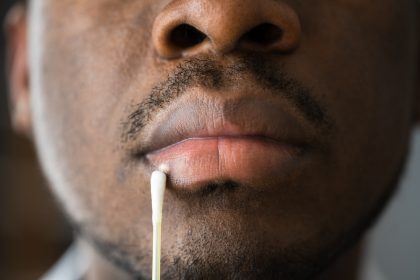Hookah smoking is often regarded as a social affair, fostering a sense of camaraderie among participants. However, beneath the veil of this communal pastime lies a realm of potential health risks that extend beyond mere enjoyment. One such concern associated with this popular practice is the potential transmission of herpes, a viral infection that manifests in various forms.
Understanding the avenues through which herpes could be contracted during hookah smoking sessions is paramount in comprehending the broader risks linked to this seemingly harmless social activity. Despite its convivial ambiance, the shared nature of hookah smoking creates an environment ripe for the transmission of infections, including herpes. Delving into the mechanisms behind this transmission can shed light on the necessary precautions and awareness required to safeguard individuals partaking in this widely enjoyed but potentially risky indulgence.
What is herpes, and how is it transmitted?
Before delving into the connection between hookah smoking and herpes transmission, it’s essential to grasp the basics of the herpes virus. Herpes simplex virus (HSV) exists in two primary forms: HSV-1 and HSV-2. HSV-1 typically manifests as oral herpes, causing cold sores, while HSV-2 is commonly associated with genital herpes. Both strains can infect the oral or genital areas, leading to discomfort and outbreaks.
Transmission of herpes occurs through direct contact with the infected area, including oral, genital or even skin-to-skin contact during shedding periods, when the virus is most contagious. This transmission commonly occurs via kissing, oral sex or genital contact.
Hookah smoking: A potential source of herpes transmission
Hookah smoking involves the use of a communal water pipe shared among multiple individuals, making it a potential avenue for viral transmission. Herpes can be transmitted through the sharing of hookah mouthpieces or hoses, especially when individuals engage in smoking sessions despite having active herpes lesions or cold sores.
The close proximity during hookah sessions — coupled with the sharing of mouthpieces or hoses — can facilitate the transfer of the virus from an infected individual to others participating in the session. This scenario poses a heightened risk, particularly when proper hygiene practices and precautionary measures are neglected.
Reducing the risk of herpes transmission during hookah sessions
To mitigate the risk of herpes transmission during hookah smoking sessions, several precautionary measures can be adopted:
1. Personal Mouthpieces: Encouraging the use of individual mouthpieces or disposable tips for each participant can significantly reduce the risk of direct contact with contaminated surfaces.
2. Hygiene practices: Emphasizing hygiene practices — such as hand washing before and after handling the hookah apparatus — can minimize the chances of viral transmission.
3. Avoiding sharing of accessories: Discouraging the sharing of hoses, mouthpieces or any other hookah-related accessories can prevent direct contact and potential transmission of herpes.
4. Awareness and responsibility: Educating individuals about the risks associated with sharing hookah equipment — especially during outbreaks or visible symptoms — promotes responsible behavior and reduces the likelihood of viral spread.
In essence, while hookah smoking isn’t a direct cause of herpes, its communal setup heightens the possibility of viral transmission. Insufficient attention to hygiene practices amplifies this risk, particularly when individuals with active herpes lesions partake in these sessions. Awareness of herpes transmission modes and the implementation of preventive measures stand as crucial pillars in minimizing the risk of contracting the virus during hookah gatherings.
Encouraging responsible conduct within these social contexts becomes paramount. Emphasizing the importance of personal mouthpieces, stringent hygiene practices and refraining from sharing accessories are pivotal steps in reducing transmission probabilities. Education plays a pivotal role, empowering individuals to make informed decisions about their participation in hookah sessions and promoting a collective responsibility to prioritize health and safety.
Above all, seeking guidance from health care professionals remains fundamental in navigating the intricacies of herpes transmission and other health-related concerns. Consulting experts ensure tailored advice, aiding in the safeguarding of oneself and others from potential infections associated with hookah smoking and similar communal activities. Proactive measures and informed choices are key to fostering a safer environment amid the allure of social indulgences.
This story was created using AI technology.












